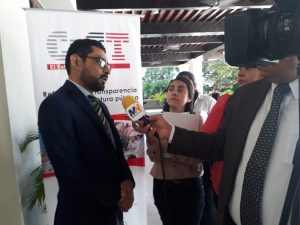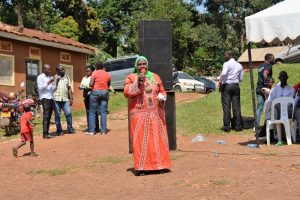Social accountability plays an important role in ensuring key issues in public infrastructure projects enter the public domain. This leads to improved quality in vital areas, such as healthcare, transport and education.

The feature sees our members working closely with stakeholders from across civil society and the media who can raise public awareness and hold decision-makers to account. Our members also work closely with local residents, to amplify their voice to demand better infrastructure.
Our methods for social accountability
Our independent review (assurance) process and report are major tools which can be used by social accountability stakeholders to shed light on key issues. The media, civil society and others can then take these key findings and use various means – such as the news, community events or civil society reports reports – to put them in the public domain. The assurance report launches are major events to publicise the findings and engage the public and high-level decision makers.
We also run training events, public engagement sessions, and facilitate media debates, including training for specific communities.

Our members also develop new systems to help citizens monitor the delivery of public infrastructure directly, including data portals, and community engagement events with hundreds of people.
This supports people to better understand infrastructure projects, and in a better position to hold relevant stakeholders to account. This results in better quality public infrastructure that enables communities to thrive and increased public trust.
Our impact page has more information about how we’ve used social accountability to increase social inclusion and equality, drive climate resilience and support crucial infrastructure projects benefiting healthcare, education, roads and local economies.